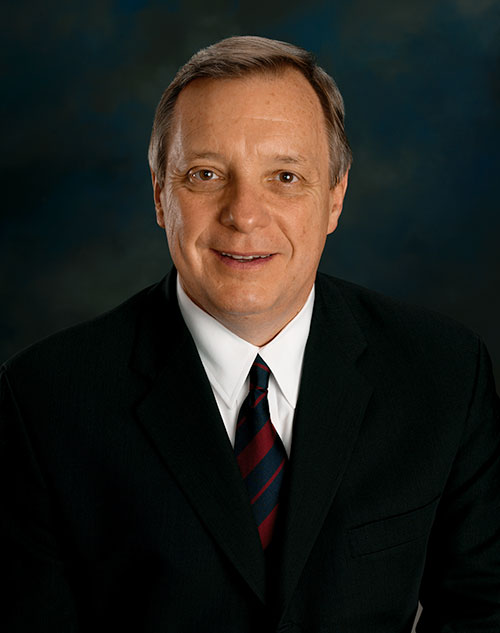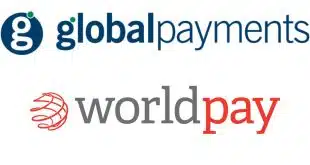Supporters and U.S. Senate sponsors of the Credit Card Competition Act stepped up pressure to pass the bill Wednesday with a Washington press conference featuring Senators Dick Durbin (D-Ill.), Roger Marshall (R-Kan.), and Peter Welch (D-Vt.). The legislators attacked merchants’ card-transaction costs as price gouging and said the levies make it more difficult for small businesses to compete, especially as consumers are feeling the financial pinch of inflation.
Introduced earlier this year, the CCCA would require financial institutions with $100 billion or more in assets to enable at least one network other than Visa or Mastercard for credit card transaction processing. This requirement, they argue, would step up routing competition and help control what they view as excessive costs for credit card acceptance.
The bill was first introduced in Congress last year but failed to get a vote. Chief co-sponsors Durbin and Marshall reintroduced it in the latest session with strong support from retail trade groups.

“So many of us here in Washington celebrate the American dream of owning a small business, but the truth is it’s far too difficult to make that dream a reality. The brutal exchange fees imposed by credit cards are absolutely abusing Vermont’s merchants,” Welch said at the press conference. “It’s hard enough to be a small business today, especially as they compete against online retailers and big box stores—now, the growing swipe fees on every transaction are making it harder.”
Merchants pay both a network fee and an interchange fee when they process a credit card payment. The latter fee goes to the financial institution that issued the card. The total cost has been a bone of contention with merchants for years, a situation that has only grown worse as these acceptance costs have increased over the years.
Now, advocates of the CCCA see an opportunity to raise support for their bill as reports have emerged in recent weeks that the networks plan to adjust their fees upward this fall. “The Visa-Mastercard duopoly’s plan to raise interchange fees is just the latest reason to pass the bipartisan Credit Card Competition Act, so we can make it easier for our small businesses to thrive,” Welch said a the press conference.
The press conference follows a flurry of activity by CCCA proponents aimed at garnering congressional support for the bill now that Congress has reconvened following its summer recess. Their most recent tactics to build congressional support for the bill center on voter sentiment toward the merchant fees the card networks charge.
Adding to the pressure on the networks, the Merchants Payments Coalition, a retailer trade group focused on payments costs, on Monday issued a press release stating that 65% of likely voters support reform when it comes to merchant card-acceptance fees. Consumer support for card- acceptance fee reform is split closely along the lines of consumers’ political affiliation, with 69% of voters identifying as Democrats, 66% of Independents, and 60% of Republicans, saying they support reform.
Pierpont Consulting & Analytics LLC surveyed nearly 1,000 consumers over the course of Sept. 5 to Sept. 11 on behalf of the MPC.
On the same day, The National Retail Federation released results of a survey showing that just 21% of consumers believe the credit card companies are honest and trustworthy when they speak before Congress on the matter of merchant-acceptance fees.
For its part, the NRF said card-acceptance fees are most merchants’ highest cost after labor and lead to an increase in prices paid by consumers of more than $1,000 a year for the average family. The NRF added merchants in the United States paid $126.4 billion in card-acceptance fees in 2022, a 20% increase from the prior year.
Senators Durbin and Marshall took to the Senate floor recently to lambaste Visa and Mastercard’s reported plans to raise interchange rates beginning in October. Visa and Mastercard routinely adjust interchange rates in the spring and fall of each calendar year. Marshall used particularly rough rhetoric during his speech, likening Visa and Mastercard to hogs that are getting fat at the expense of small businesses that are unable to keep their prices low due to high card- acceptance fees.
On Aug. 30, Durbin and Marshall issued a joint statement calling on Visa and Mastercard to forgo their planned interchange hikes.
Opponents of the CCCA, which include the Electronic Payments Coalition, have sought to counter the growing pressure from the merchant lobby, arguing that card-acceptance fees have remained steady in recent years and are not as big a cost burden for merchants as CCCA proponents claim.





